Varieties of spots and tips for their selection
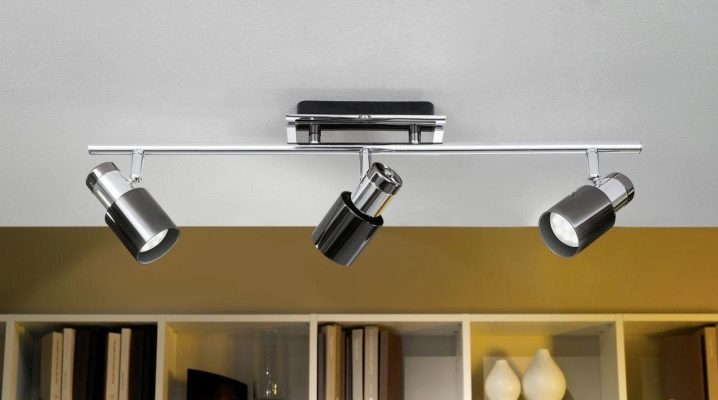
In stores you can find a huge variety of different chandeliers, sconces, floor lamps and other lamps for home or office. However, most of them give diffused light, regardless of the shape or number of lamps. To set a strict direction for lighting and at the same time save space in the room, you should opt for spotlights.
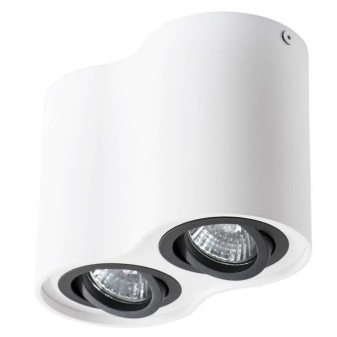
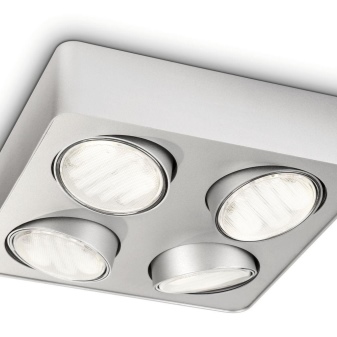
What it is?
Such lighting devices got their name from the English word "spot", which means "spot". Indeed, a light spot of a certain size from such an electric lamp falls on the illuminated surface, highlighting only it. This is how the spot differs from a regular chandelier, and therefore, with its help, designers often focus on individual interior details or zone rooms.
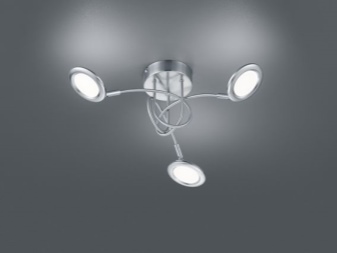
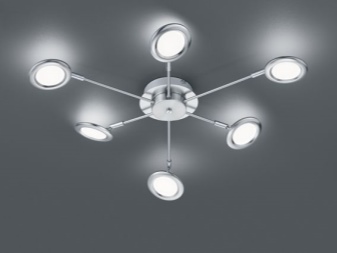
Technically, a spot luminaire is a local type luminaire whose structure consists of a reflector or multiple reflectors mounted together. A single lamp looks like a small round hole, rigidly fixed on a plane or bracket, into which a light bulb is screwed.
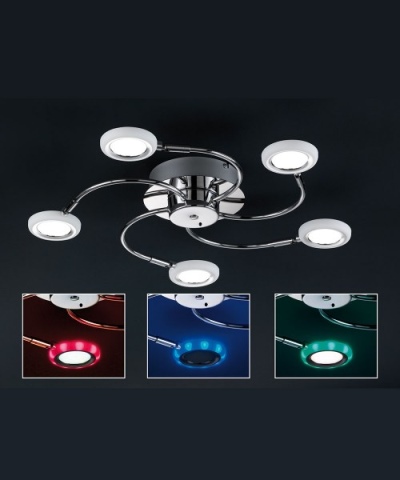
Views
There are several different classifications of spot luminaires. For example, depending on their location, one can distinguish:
- room;
- street.
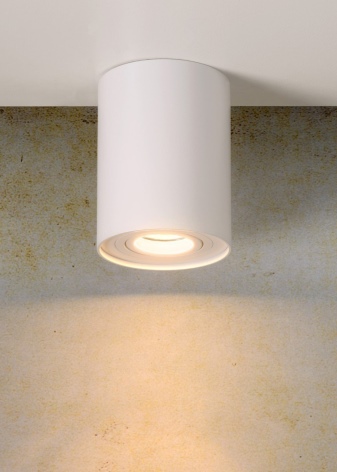
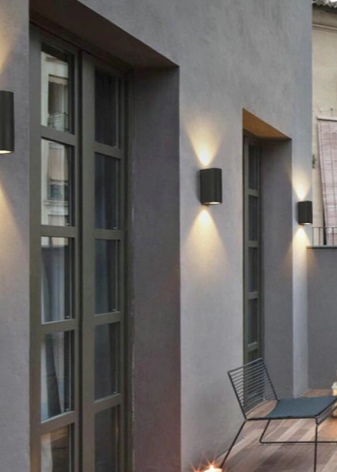
The former include both ceiling and wall lights. Ceiling lighting can be installed not only on a smooth painted or suspended ceiling, but also on a slatted or stretch ceiling.
The spot sconce is also great for both normal and drywall walls.
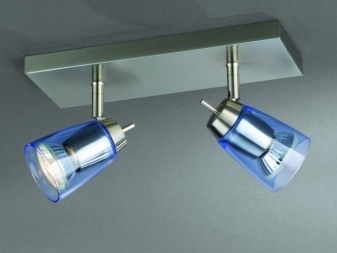
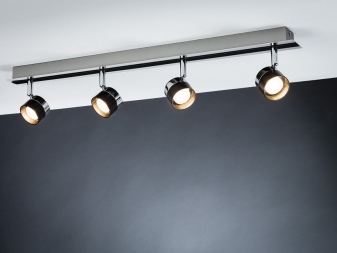
Outdoor lighting should be more waterproof and sturdy so as not to be damaged by rain or wind. Most often, dimmable spots are installed on open verandas and under awnings, which allow you to adjust the brightness of the light in order to choose the optimal level of illumination.
In addition to location, the classification of spots is directly influenced by their design features. So, according to the method of installation and design of the device, one can distinguish overhead, built-in, combined and tension spotlights.
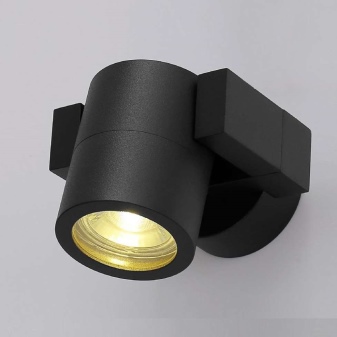
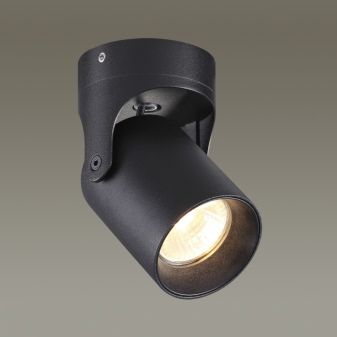
Overhead
Such spots with one or several lamps are easiest to mount on any smooth surface. They can be simply glued as tiny furniture spots to illuminate the cabinet, or mounted to the wall using a swivel bracket that allows you to change the angle of inclination.
Most often, single surface-mounted spotlights are produced immediately with a switch on the body, however, there are many options with remote switching on.
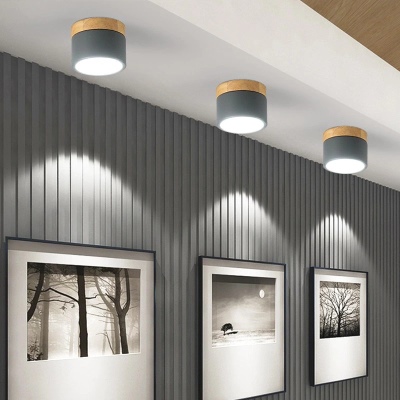
Embedded
The most popular option for mounting ceiling lighting is spots recessed by the body into the surface of the ceiling. The spring mount makes it easy to install or replace the spotlight, and its tiny size leaves plenty of space. Cheaper options only shine in one direction, but spots at a slightly higher price are equipped with a built-in swivel mechanism. It is quite difficult to illuminate a large living room with spots alone, but for a small bathroom or bathroom, 4-6 built-in moisture-resistant lamps are enough.
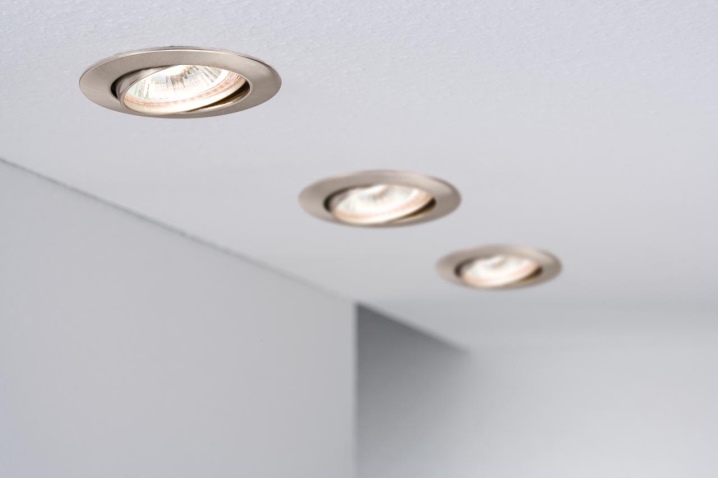
Complex combined
Larger structures for several reflectors mounted on one bracket or a special long bar.They are often used as a replacement for conventional luminaires, since they have several shades and illuminate a large enough space, while retaining the ability to change the direction of each individual bulb.
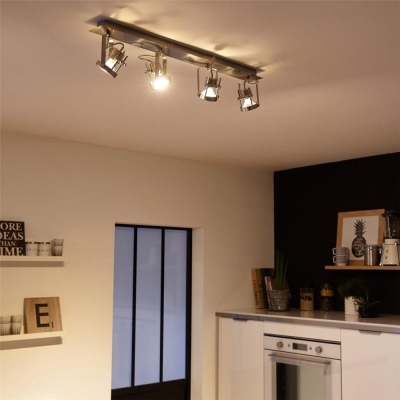
Stretch
Unlike spots on a rigid bracket, such models are mounted on flexible rails, which can be shaped directly during installation. Most often, such lighting devices are at the same time track, that is, they allow you to move them along the installed flexible rod in one direction or another. These spots are great for small home studios or offices.
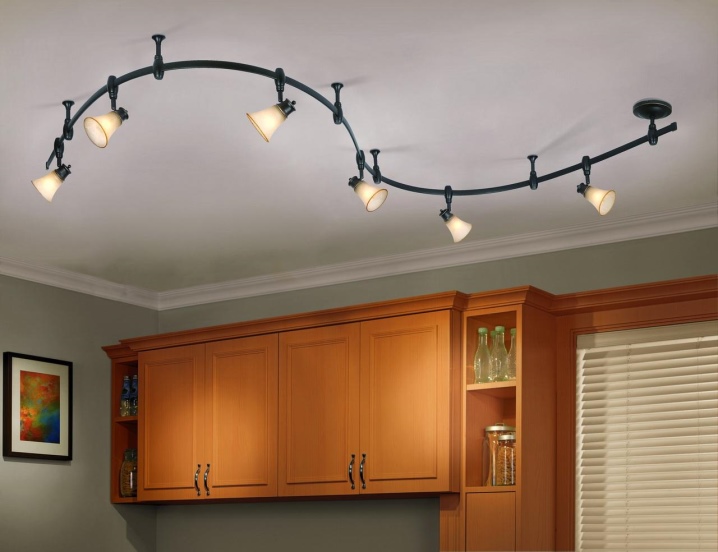
Design
The variety of design solutions in the field of spotlights allows you to choose the ideal option for almost any interior.
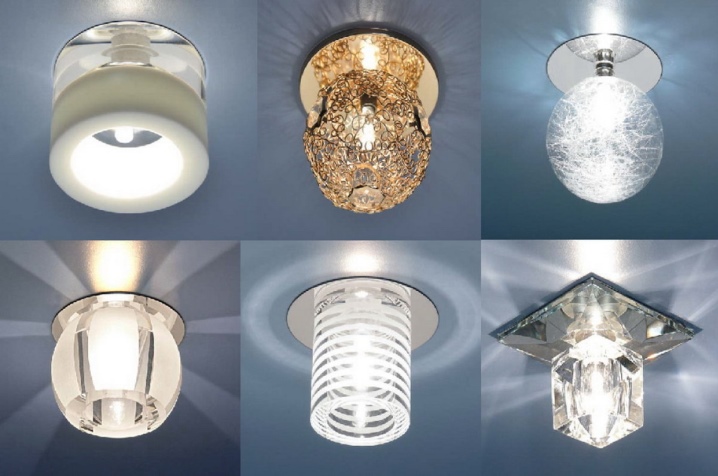
The form
On sale you can find spots of both simple geometric shapes and unusual complex designs. So, for example, for a corridor or office, it is best to choose strict lines: round or square lamps of large and small sizes. Embedded spots should also be as simple as possible. But overhead point devices with shades can be chosen not only in the form of simple cylinders, but also spherical, openwork and even in the form of old street lamps... An interesting element is the double cylindrical spots, which at the same time give twice as much light.
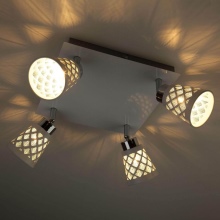
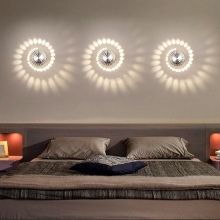
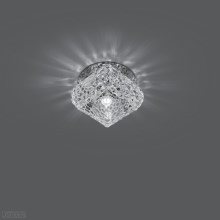
Colour
Most often you can buy black, white and brown spots, less often - green or red. If you want to hide the edge of the recessed luminaire body or its bracket, you can select the color of the spot to match the color of the surface on which it will be located. Or, conversely, choose contrasting colors to make a bright accent on a beautiful painting or photograph on the wall.
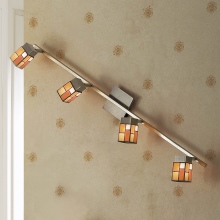
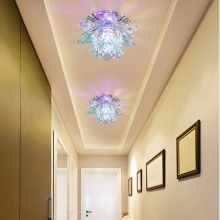
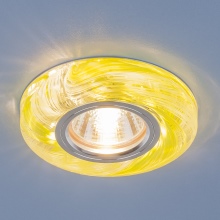
Material
Most spots are made made of metal and plastic, however, in specialized stores or on order, you can purchase products made of bronze, wood and other unusual materials.
However, most often they are covered with paint or film to give the appearance of a more expensive coating. So, for example, unusual wooden lamps may well turn out to be ordinary plastic ones.
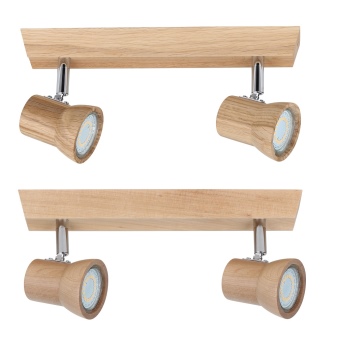
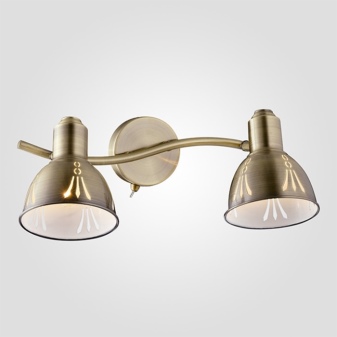
Styles
Finally, the designers offer spotlights for any interior style, be it classic stucco ceilings, modern hi-tech, minimalist loft or Provence style kitchen. Shades can be made of fabric, natural materials or chrome-plated metal. The main thing is to choose them with taste so that the style of such a spot is combined with the style of the whole room.
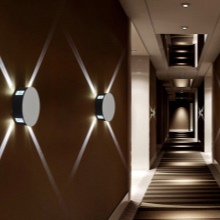
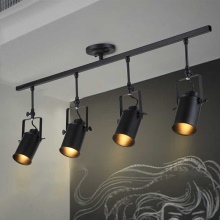
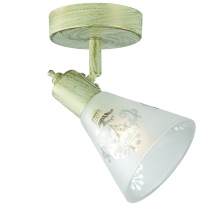
Applications
The main purpose of any luminaire is to illuminate the room in which they are installed. But spotlights have several other uses. So, for example, in the hall or living room, such lamps favorably emphasize any decorative elements in the form of stucco patterns placed on the walls and ceiling, beautiful reproductions and even a skylight. They can also zone the space into a dining area and a recreation area.
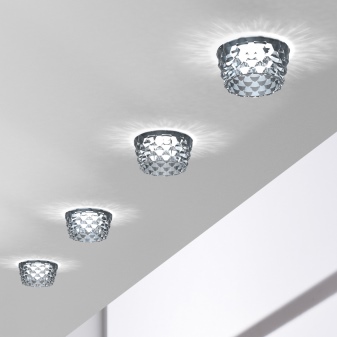
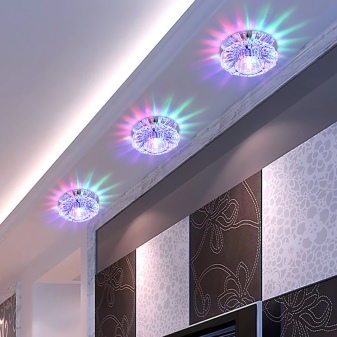
In the bedroom, additional lighting looks good on the lower level of multi-level ceilings or in niches. And in the study and in the nursery, a correctly located spotlight will make you forget about bulky table lamps and bedside lamps that are always falling from the bedside table. Overhead or built-in spots in the closet or dressing table will be appreciated by makeup lovers. Built-in lamps in the bathroom will protect you from the explosion of light bulbs that have been splashed with cold water. And complex combined compositions on brackets can easily replace an out-of-fashion floor lamp near your favorite chair.
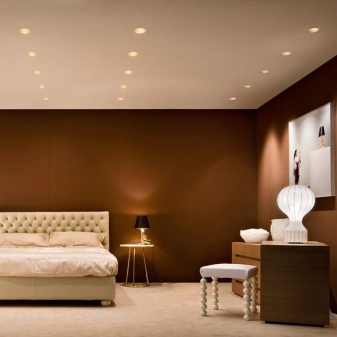
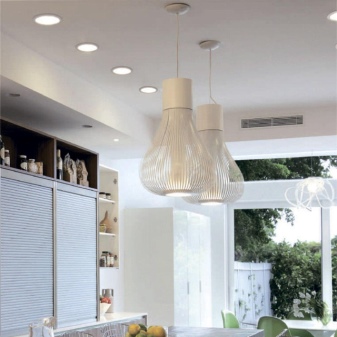
Track spots are also often used in small studios during video recording. And various bars, cafes and shops often illuminate shop windows and bar counters with such LED bulbs.
How to choose?
Before planning to replace an old boring chandelier with modern spot lamps, it is worthwhile to study in advance which characteristics you need to pay attention to first.
Power
The more watts indicated on the spot package, the more electricity such a lighting device will consume. Moreover, the brightness does not always directly depend on the power indicator. So, modern halogen and LED bulbs have a stronger glow than ordinary ones, and their energy consumption is much lower.
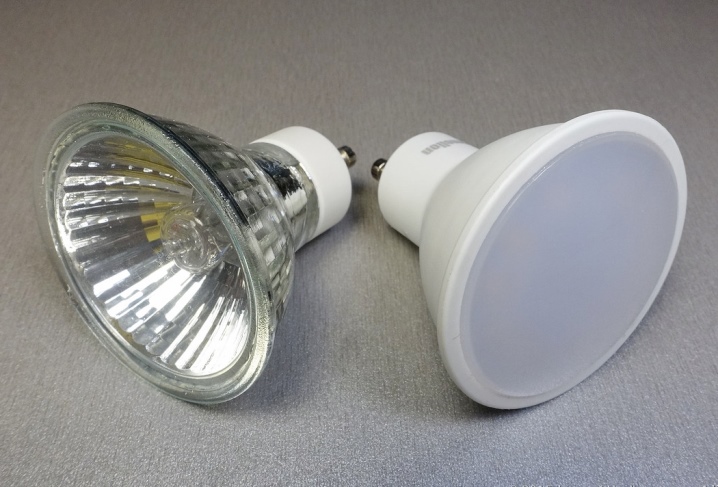
Swivel mechanism
It is advisable to immediately select a spot with the ability to turn. In this case, even after changing zones or rearranging furniture, it will be easy to redirect the spot of light to the right place.
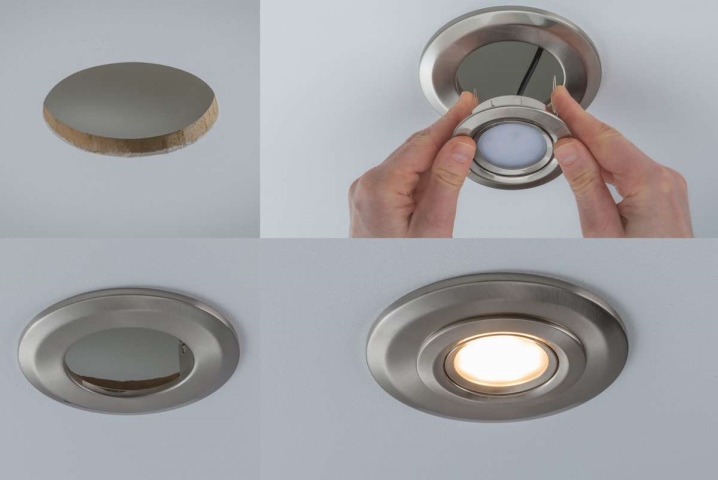
Dimensions (edit)
This parameter is especially important when installing recessed ceiling lights. The depth, diameter and height of the spots in this case are selected for a specific material and dimensions of the ceiling covering.
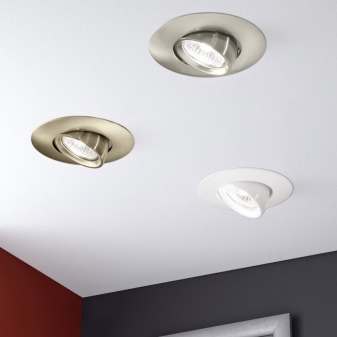
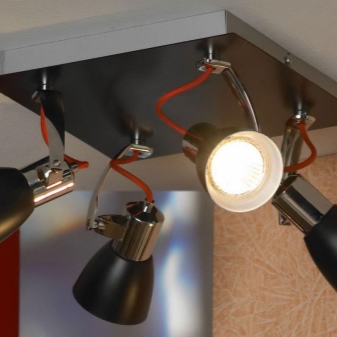
Style
Last, but not least, what you should focus on is style. Ideal if the design of the luminaire complements the interior of the room... But even if the decision is chosen to play in contrast with the surface, the spot should not conflict with the rest of the room.
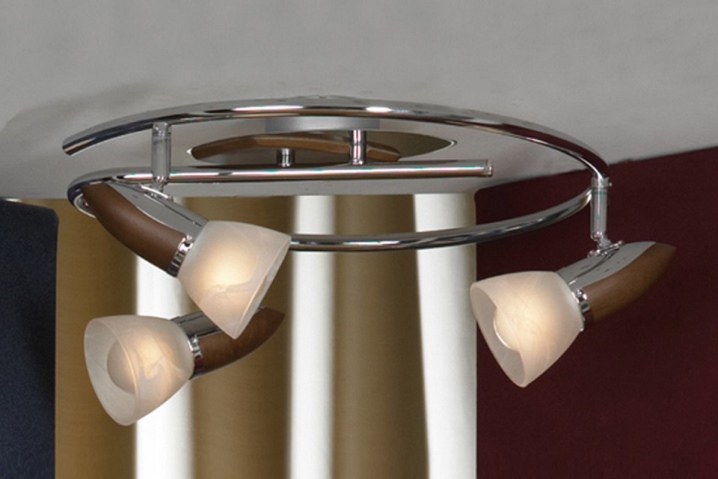
Competently designed, selected and mounted lighting with spotlights will emphasize the uniqueness of even the simplest design of an apartment, as well as provide convenience and comfort to its residents.
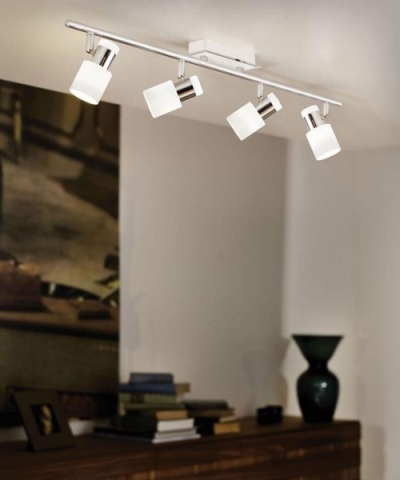












The comment was sent successfully.